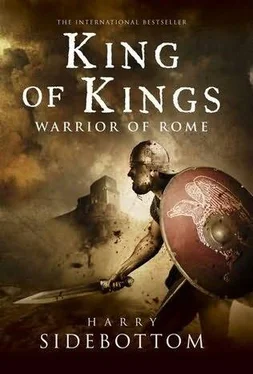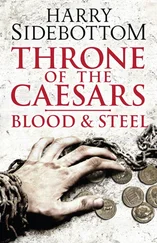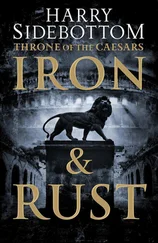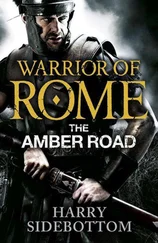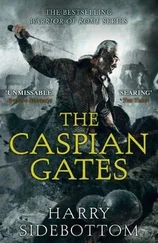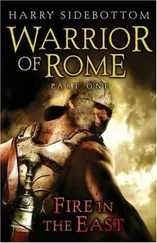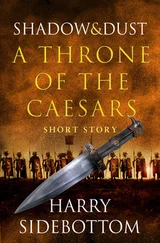Harry Sidebottom - King of Kings
Здесь есть возможность читать онлайн «Harry Sidebottom - King of Kings» весь текст электронной книги совершенно бесплатно (целиком полную версию без сокращений). В некоторых случаях можно слушать аудио, скачать через торрент в формате fb2 и присутствует краткое содержание. Жанр: Исторические приключения, на английском языке. Описание произведения, (предисловие) а так же отзывы посетителей доступны на портале библиотеки ЛибКат.
- Название:King of Kings
- Автор:
- Жанр:
- Год:неизвестен
- ISBN:нет данных
- Рейтинг книги:3 / 5. Голосов: 1
-
Избранное:Добавить в избранное
- Отзывы:
-
Ваша оценка:
- 60
- 1
- 2
- 3
- 4
- 5
King of Kings: краткое содержание, описание и аннотация
Предлагаем к чтению аннотацию, описание, краткое содержание или предисловие (зависит от того, что написал сам автор книги «King of Kings»). Если вы не нашли необходимую информацию о книге — напишите в комментариях, мы постараемся отыскать её.
King of Kings — читать онлайн бесплатно полную книгу (весь текст) целиком
Ниже представлен текст книги, разбитый по страницам. Система сохранения места последней прочитанной страницы, позволяет с удобством читать онлайн бесплатно книгу «King of Kings», без необходимости каждый раз заново искать на чём Вы остановились. Поставьте закладку, и сможете в любой момент перейти на страницу, на которой закончили чтение.
Интервал:
Закладка:
'… Marcus Pomponius Bassus. A man whose ancestor, 769 years ago, sat in the very first meeting of the free Senate, the very day after the expulsion of Tarquinius Superbus, the last king of Rome. I say that, this very day, Pomponius Bassus should be ordered to gird on his armour, take up his sword and march with an army large enough for the task to eradicate this upstart eastern threat once and for all.'
Silence succeeded Acilius Glabrio's ringing words. If Pomponius Bassus was surprised by this turn of events, he gave no sign of it. He arranged his plump features into an expression of nobility called up for hard duty and in a voice quivering with emotion, real or assumed, he announced that, onerous as the task was, if called, he would not hang back.
End the eastern threat once and for all, my arse, thought Ballista. For over three hundred years, the Romans had fought first the Parthians and now the Sassanids, and they were no nearer ending the eastern threat once and for all than they had been after the first clash, when the Roman triumvir Crassus was killed at the disastrous battle of Carrhae.
The silence stretched. The gods alone might know what subtle calculations, what delicate balancing of favours given and received, rushed silently through the thoughts of the majority of the councillors. Ballista knew that there were depths here that he could not penetrate.
At last, Macrianus slowly rose to his feet, his lame leg impeding him. In a measured voice he supported giving the command to Pomponius Bassus. Following that, there was an almost undignified scramble to agree. In the arrogance of their youth and the reflected power of their father, Macrianus the Younger and Quietus made sure that their voices were heard next. After them came one Maeonius Astyanax, a middle-aged senator with a reputation for both intellectuality and slavishly following the house of Macrianus. Next, ponderously trying to impart an air of dignity, another descendant of the old republican nobility spoke, the polyonymous Gaius Calpurnius Piso Frugi. By now, Pomponius Bassus' attempts to assume an air of dutiful resignation to hard service had failed, and he gave off his more accustomed impression of unreflecting self-satisfaction.
Ballista felt a movement at his side. Aurelian rose to his feet. Not you too, thought Ballista. Surely you cannot think that old fool is up to the task?
Aurelian stood for a few moments. His tough-looking head, with its close-trimmed hair and beard, turned to take in the whole room.
'I hear what Gaius Acilius Glabrio says. I have nothing but the greatest respect for Pomponius Bassus. But he is the wrong man.' Aurelian spoke quietly, his flat vowels, typical of those from the Danube, emphasizing the lack of traditional rhetoric, or subtly pointing to a rhetoric of plain speaking. Involuntarily, the councillors leant forward. 'Pomponius Bassus is not as young as he was. It is many years since he commanded troops in the field. No, what this command needs is a man in the prime of life with a track record of recent military success. Tacitus here is fifty-five and straight from the army of the Danube. He should command.'
The blunt brevity of Aurelian caught all by surprise. Once he was sure that his fellow Danubian was not going to say anything else, Tacitus said that, if commanded, he would serve. Support came in slowly; the professional military men from the north of the imperium were far from universally popular with members of the elite from more traditional backgrounds. The first to offer it, however, was an elderly member of the great Italian nobility, one Fabius Labeo. Even Ballista could work out that Labeo was acting out of pique that Acilius Glabrio had proposed Pomponius Bassus rather than himself. Next was a younger senator, one Valens. Ballista had no idea why, but Valens always opposed Macrianus. Quietly, almost apologetically, the officer in command of the imperial horse guards, the Equites Singulares Augusti, a young Italian tribune also named Aurelian, and universally known as 'the other Aurelian', added his voice. When it was obvious that no one else was going to offer their support, Ballista himself briefly announced that he thought Tacitus was the right man.
As he sat down, it occurred to Ballista that, so far, three of the great functionaries had not yet spoken. There had been not a word from Successianus the Praetorian Prefect, Cledonius the ab Admissionibus or Censorinus the Princeps Peregrinorum. As the northerner sought them out with his eyes, he thought he saw Successianus almost imperceptibly nod to Cledonius. Sure enough, in a moment the latter was rising to his feet.
'Dominus, imperial amici, we have been offered much good advice, all of it freely spoken in the highest tradition of the Res Publica of the Romans. Yet I think that the previous speakers have not explored absolutely all aspects of this case. Possibly there is more that we can draw out.' Cledonius' voice was sonorous, his tone one of helpful reasonableness.
'Both Pomponius Bassus and Tacitus are great men. It would be unfitting to send either into the field without an army large enough to suit their dignitas. Yet there may be reasons to suggest that such a course of action would not be a good thing. First, this is only a minor detachment of the Persian army, less than ten thousand men, and it is not led by the Sassanid king himself. Second, to equip a force befitting the dignitas of either of the proposed generals, it would be necessary to strip the imperial field army here in Antioch. No one would be so rash as to suggest that the dignitas of a subject, no matter how great, should outweigh that of the emperor himself.' Cledonius' face remained blank as he allowed a time for his audience to reflect.
'This incursion must indeed be dealt with, speedily and effectively, but by a small, highly mobile force led by a younger man. There is a man here with very recent experience of fighting the eastern foe. A man burning with a desire for revenge. A small force must be sent to the Euphrates, led by Marcus Clodius Ballista.'
As if on cue, first Successianus then Censorinus spoke in favour of this idea. The two previous candidates, Pomponius Bassus and Tacitus, wasted no time in affirming their loyalty to the emperor by renouncing any interest in the command and most wholeheartedly backing Ballista — now it was mentioned, he was far and away the obvious man for the post. With varying degrees of reluctance — a great deal in some cases — all the remaining members of the consilium fell into line.
The emperor Valerian inclined his head — his amici had spoken well. Marcus Clodius Ballista, the Dux Ripae, would keep his title and, with a force to be determined later, would set off as soon as possible to fight the Sassanids on the Euphrates.
As he rose to his feet and accepted the command, Ballista realized that, for all the years he had spent in the Roman empire, he could still be completely at sea in the ways of the imperial court. Hopefully, Julia would be able to explain the political manouverings to him. But he had what he wanted: he had an army, a chance to redeem his reputation. And yes, he wanted revenge — revenge on the Sassanids who had tortured and killed so many at Arete and, one day, revenge on the man who had ordered it: on Shapur, the King of Kings. Antioch was a big and confusing city. If you turned off the main street by the Pantheon into the street known as the Jawbone, the one where so many Christians were to be seen, and followed it down through, first, the potters' quarter then that of the tanners, eventually you would reach the Orontes. If you then turned left at the waterfront and, keeping the jetties and godowns on your right, walked south down Mariners' Street, after about a quarter of an hour you would come to the public baths named after a local woman called Livia. Just beyond the baths was the bar with the improbable name of Circe's Island.
Читать дальшеИнтервал:
Закладка:
Похожие книги на «King of Kings»
Представляем Вашему вниманию похожие книги на «King of Kings» списком для выбора. Мы отобрали схожую по названию и смыслу литературу в надежде предоставить читателям больше вариантов отыскать новые, интересные, ещё непрочитанные произведения.
Обсуждение, отзывы о книге «King of Kings» и просто собственные мнения читателей. Оставьте ваши комментарии, напишите, что Вы думаете о произведении, его смысле или главных героях. Укажите что конкретно понравилось, а что нет, и почему Вы так считаете.
